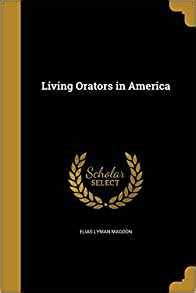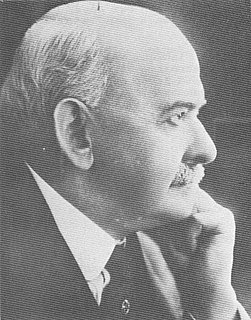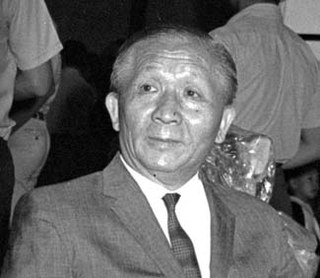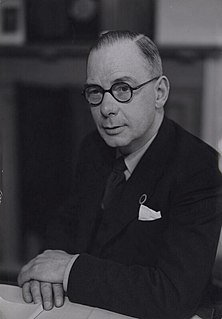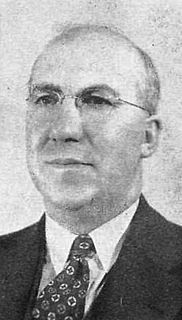A Quote by Elias Lyman Magoon
In what a delightful communion with God does that man live who habitually seeketh love! With the same mantle thrown over him from the cross - with the same act of amnesty, by which we hope to be saved - injuries the most provoked, and transgressions the most aggravated, are covered in eternal forgetfulness.
Related Quotes
Because the Christian God is not a lonely God, but rather a communion of three persons, faith leads human beings into the divine communion. One cannot, however, have a self-enclosed communion with the Triune God- a "foursome," as it were-- for the Christian God is not a private deity. Communion with this God is at once also communion with those others who have entrusted themselves in faith to the same God. Hence one and the same act of faith places a person into a new relationship both with God and with all others who stand in communion with God.
When we look at the cross we see the justice, love, wisdom and power of God. It is not easy to decide which is the most luminously revealed, whether the justice of God in judging sin, or the love of God in bearing the judgment in our place, or the wisdom of God in perfectly combining the two, or the power of God in saving those who believe. For the cross is equally an act, and therefore a demonstration, of God’s justice, love, wisdom and power. The cross assures us that this God is the reality within, behind and beyond the universe.
Man depends on God for all things: God depends on man for one. Without man's love God does not exist as God, only as creator, and love is the one thing no one, not even God himself, can command. It is a free gift or it is nothing. And it is most itself, most free, when it is offered in spite of suffering, of injustice, and of death . . . The justification of the injustice of the universe is not our blind acceptance of God's inexplicable will, nor our trust in God's love, his dark and incomprehensible love, for us, but our human love, notwithstanding anything, for him.
The spot where God's triumph is achieved, God's victory over sin, over lawlessness, is the cross of Calvary- the cross on which the Son of God died. In that cross and through the cross the works of the devil were destroyed, and the One who conquered him is yet to bruise the serpent's head in the final triumph when He comes again, as recorded in prophecy.
I would hope that we would not lose the real objective of our cherished opportunities to serve. That objective, that eternal goal, is the same spoken of by the Lord and found in the Pearl of Great Price: "For behold, this is my work and my glory-to bring to pass the immortality and eternal life of man." May we ever remember that the mantle of membership in The Church of Jesus Christ of Latter-day Saints is not a cloak of comfort but rather a robe of responsibility. Our duty, in addition to saving ourselves, is to guide others to the celestial kingdom of God.
I love you. As the same value, as the same expression, with the same pride and the same meaning as I love my work, my mills, my Metal, my hours at a desk, at a furnace, in a laboratory, in an ore mine, as I love my ability to work, as I love the act of sight and knowledge, as I love the action of my mind when it solves a chemical equation or grasps a sunrise, as I love the things I've made and the things I've felt, as *my* product, as *my* choice, as a shape of my world, as my best mirror, as the wife I've never had, as that which makes all the rest of it possible: as my power to live.
Christ is of two natures, the human and the divine, and we are the same: we are of the human nature, but covered with the divine. He is the God-man, and we are the God-men. He is the ark made of wood covered with gold, and we are the boards made of wood covered with gold. In number we are different, but in nature we are exactly the same.
Jesus says that every Christian has his own cross waiting for him, a cross destined and appointed by God. Each must endure his allotted share of suffering and rejection. But each has a different share: some God deems worthy of the highest form of suffering, and gives them the grace of martyrdom, while others he does not allow to be tempted above that which they are able to bear. But it is the one and the same cross in every case.
God is God. I dethrone Him in my heart if I demand that He act in ways that satisfy my idea of justice. It is the same spirit that taunted, "If Thou be the Son of God, come down from the Cross." There is unbelief, there is even rebellion, in the attitude that says, "God has no right to do this to five men unless...
If a man has no worries about himself at all for the sake of love toward God and the working of good deeds, knowing that God is taking care of him, this is a true and wise hope. But if a man takes care of his own business and turns to God in prayer only when misfortunes come upon him which are beyond his power, and then he begins to hope in God, such a hope is vain and false. A true hope seeks only the Kingdom of God... the heart can have no peace until it obtains such a hope. This hope pacifies the heart and produces joy within it.
Eternal life is the most important thing in all the world for which you and I should work and hope someday to attain. . . . the person who attains eternal life is exceedingly rich. Seek not for riches but for wisdom. . . . . . . he that hath eternal life is rich. Eternal life is the greatest of all of the gifts of God.
Solidarity does not assume that our struggles are the same struggles, or that our pain is the same pain, or that our hope is for the same future. Solidarity involves commitment, and work, as well as the recognition that even if we do not have the same feelings, or the same lives, or the same bodies, we do live on common ground.
